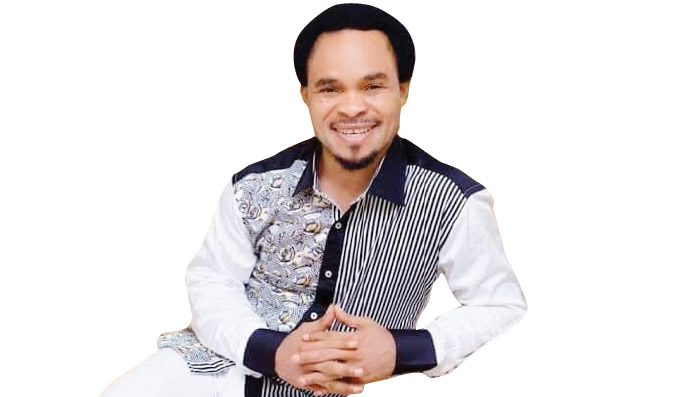Pastor Chukwuemeka Ohanaemere, widely known as Odumeje, the General Overseer of the Mountain of Holy Ghost Intervention Deliverance Ministry in Onitsha, Anambra State, has recently stirred controversy with his vehement reactions to online critics. In a viral video that was disseminated among his followers, he articulated a bold stance against those who speak against him on social media. Odumeje unequivocally stated that he does not resort to law enforcement measures when it comes to confronting his critics, instead opting to engage his claimed spiritual powers as his form of defense. This declaration has sparked significant conversation around the intersection of religion, celebrity, and the dynamics of public criticism in contemporary society.
In his message, Odumeje detailed a systematic approach to how he processes the criticisms directed at him. He explained that he monitors the actions of his detractors closely, counting their verbal attacks and gauging their severity. After an initial denunciation, he noted that he observes how often they continue to challenge him. By the time a critic has spoken against him for the fourth time, he perceives it as a serious provocation, transforming the situation into one of confrontation over power dynamics. His ritualistic evaluation of the criticism has drawn parallels with the broader societal context of how leaders often respond to dissent, especially within the realms of religious leadership.
As the video progressed, Odumeje escalated his language, asserting that repeated criticism constitutes not just verbal attacks but a challenge to his authority and spiritual prowess. He ominously claimed that if a critic persists to the fifth assertion, he will prepare to unleash his promised retribution. This rhetoric of spiritual warfare speaks to the way that some faith leaders frame opposition; they often see themselves as engaged in a battle not merely against human adversaries but against spiritual forces as well. Such statements invite questions about the implications of religious leaders making threats, especially when they are taken in a serious light by their followers and critics.
The pastor’s remarks consequently elicited a raucous response from his congregation, showcasing the dynamics of charismatic leadership where followers often mirror and amplify the sentiments of their leaders. The enthusiastic applause he received hints at a community that may be collectively embracing a combative stance against external critique, reinforcing the bonds between leadership and followership. The enthusiasm of his congregation also raises discussions around the responsibilities of religious leaders in shaping societal attitudes and behaviors, particularly in how they handle public criticism.
Moreover, Odumeje’s comments reflect a larger pattern in which public figures, especially those in religious positions, respond to dissent with aggressive rhetoric. This highlights a growing trend in which personal faith practices intersect with public perception and societal norms, creating a milieu where spiritual authority can sometimes be wielded as a means of silencing opposition. His promise of retaliatory power, conveyed through such components of spiritual practice, raises critical questions about the boundaries of acceptable behavior by leaders, their accountability, and the implications of their threats for their supporters.
In essence, Pastor Odumeje’s proclamation is emblematic of a broader cultural narrative surrounding religious leaders and the implications of their interactions with critics. While he deflects potential formal recourse against adversaries in favor of spiritual intervention, his willingness to threaten violence is alarming and presents vital discussions on authority, accountability, and the interpretation of spiritual power within the contexts of faith and public life. The passionate response from his followers indicates a readiness to rally behind him, reinforcing his position as a charismatic leader but also reflecting potential dangers inherent in fostering an environment that condones threats in the name of spiritual supremacy.


